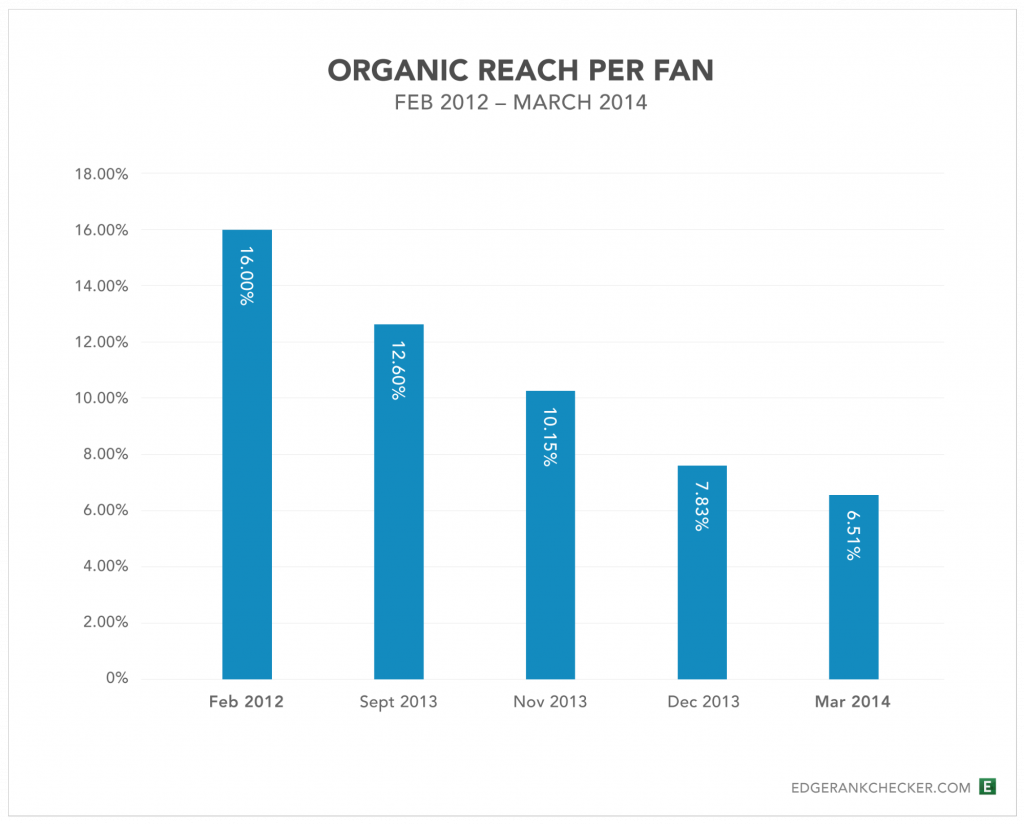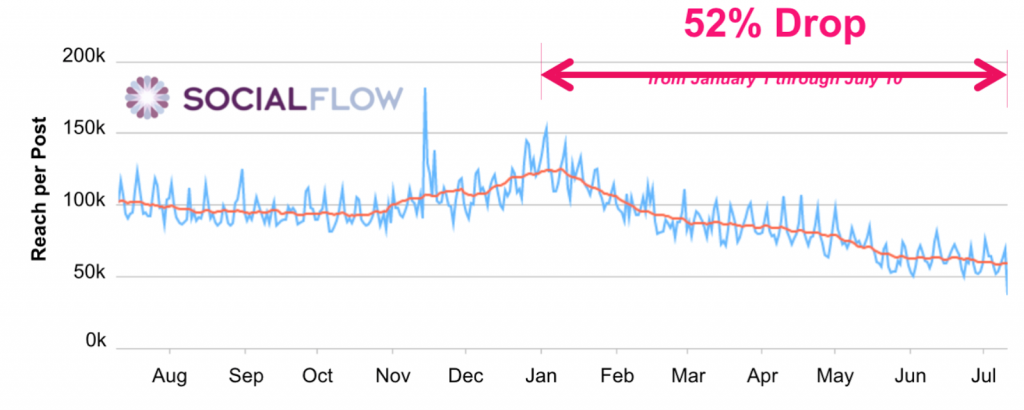Overview
Organic reach and paid reach are two very important terms that come up often in relation to social media marketing.
In this post, we’re going to be explaining what each of these terms means, taking a closer look at how organic reach and paid reach relate to each other, and sharing some insight to help you to figure out which type of reach to focus on in your own social media marketing campaigns.
What is reach?
To understand the difference between organic and paid reach, we first have to define what we mean by ‘reach’. In social media, ‘reach’ typically refers to the number of people who see your social ads or posts at least once. In Facebook, this is an estimated metric, rather than an exact figure.
It’s important to distinguish reach from impressions. The former is the number of unique viewers that see your posts, whereas the latter is just the total number of views, and may include multiple views by the same user.
As such, reach is a better metric for getting a rough idea of the number of people that see your posts.
What’s the difference between organic and paid reach?
Organic reach refers to how many people your content reaches ‘organically’. In other words, it tells you the number of viewers who see your content without the help of paid distribution. These viewers might see your post because they follow your page, or because one of their friends has engaged with your post or shared it.
Paid reach, on the other hand, tells you the number of people who saw your ad only as a result of paid promotions. Paid promotions on Facebook include ‘boosted’ posts and Facebook Ads.
That’s the difference between organic and paid reach in a nutshell. Note that if a viewer sees your post twice; once through organic promotion and once through paid promotion, they’ll be counted towards both.
Now that you understand the difference between the two, the next question on your lips is probably ‘which one should I focus on?’ Let’s find out.
Is Organic Reach Dead?
Over the past few years, a clear trend has been emerging: organic reach on Facebook is in decline. Between February 2012 and March 2014, the average organic reach per fan dropped from 16% to 6.51%.

But it gets worse. In 2016, organic reach fell by a further 52%, and it hasn’t stopped there. Marketers think that organic reach on Facebook is still in a steady decline.

Why is organic reach on Facebook dying? Noone’s exactly sure, but there are likely several reasons.
The most obvious is that, as a business, Facebook ultimately exists to make money, and it’s in their best interest to prioritize paid reach over organic reach. After all, advertisers are their paycheck.
Another proposed reason is that people just aren’t sharing posts like they used to. The average user is less likely to share a post today than they were a few years back, which means posts are less likely to go viral organically.
And finally, it might be simply due to increasing competition. A tremendous amount of content gets posted to Facebook every day. There is more content than there are users, which means competition for News Feed real estate is intense.
Facebook has to sort through the heaps of content and decide which is most worthy of their audience’s attention and, a lot of the time, they’ll choose content from the publishers that are sending them ad revenue.
It’s not all doom and gloom though – there is a silver lining. The decline in organic reach has created a lot of opportunities in paid marketing. By investing in Facebook’s paid promotion services, marketers have the potential to reach huge, highly-targeted audiences.
Paid Reach to Drive Organic Reach
So does this mean brands always going to be forced to reach into their pockets to promote their business on Facebook? Not necessarily.
Investing in paid reach may actually help to ‘kickstart’ your posts and open the doors to future organic reach.
To understand this, we first need to understand how posts go viral. Facebook’s algorithm allocates reach to posts that demonstrate the best engagement.
If comparatively large numbers of viewers are engaging with your post, Facebook is more likely to push it to new audiences. If these new viewers again show high engagement with your post, you’ll be given progressively more reach. This trend continues, ensuring that only the most engaging posts go ‘viral’.
Why does this matter? Well, it shows us that a crucial ingredient in going viral and getting large amounts of organic reach is initial engagement. Paid promotions can drive that initial engagement, which can then lead to an organic impact over your next few posts in the aftermath.
This residual organic effect can actually last days, you can think of it kind of like viral ‘momentum’.
Final Thoughts
The takeaway from all of this is that the future of social media marketing on Facebook lies in paid reach. Marketers and brands need to start thinking in terms of ROI and investing in paid promotions now in order to drive future organic reach later.
What are your thoughts? Let us know in the comments!
